 Jeffrey Wells
Jeffrey Wells
Oscar Viewers Surged to 15 Million Last Night
Still in the toilet but at least they defied Richard Rushfield’s prediction (or morbid suspicion) that they might drop below last year’s calamitous tally of 10 million viewers. And after Will Smith’s bitch-slapping of Chris Rock you know that a certain low-rent sector of the public will tune in next year in hopes of something similar happening. Onward and upward!
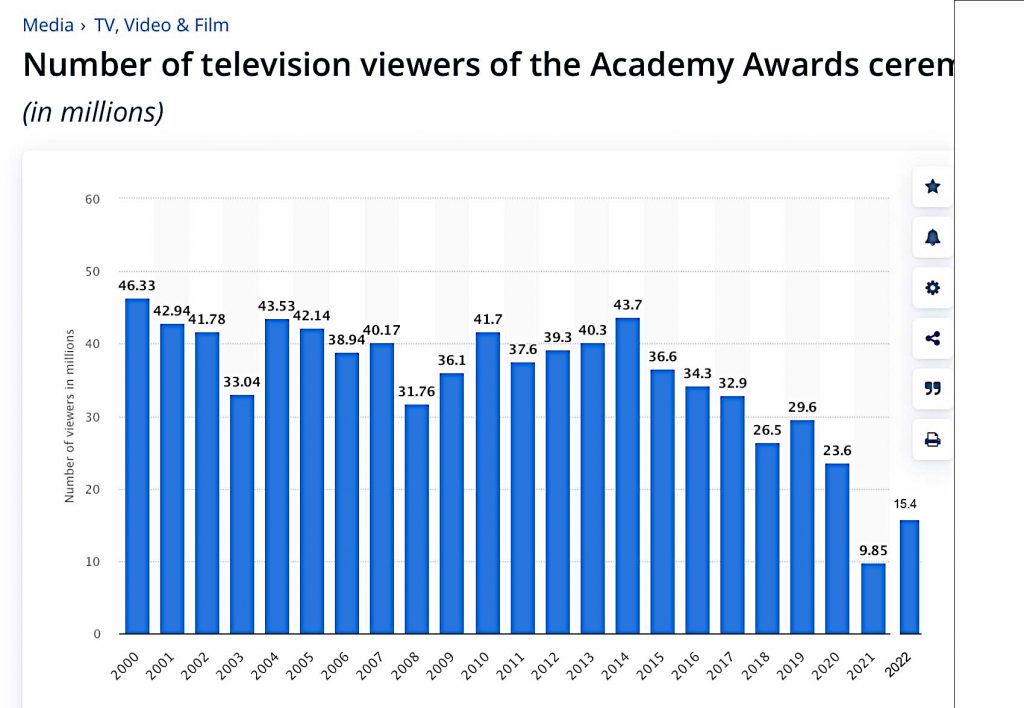
Smoking Cigarettes or Joints?
For one-third of a second I thought “oh, great!…Bill and Quentin are gonna jump into the Will Smith thing!” But of course, no…this was taped two or three weeks ago. But getting ripped together or even just smoking tobacco and maybe sharing a drink…”guys letting their hair down with the aid of mood-altering stimulants”…this is a good idea.
Now The Academy Understands
…how to save the Oscars, at least in terms of ratings. Will Smith may be an overly coddled rich bitch grappling with inner demons (or, as David Poland put it, “an uber-wealthy, entitled, pampered, self-indulgent punk”) but last night he broke through all the pretense and decorum and just said “fuck it, ahm gonna whack Chris across the chops!”
And suddenly the show no longer seemed stricken with woke cancer…well, it was and still is, but Smith gave it a shot of mad, unruly, West Philadelphia energy and thereby gave everyone a reason to go “good God, he may be an entitled animal but that sure was fun to watch and re-watch, and loads of fun to kvetch and moralize about!”
Plus the Academy Museum (“Woke House”) suddenly has a new idea for a killer exhibit that will attract tourists by tens of thousands.
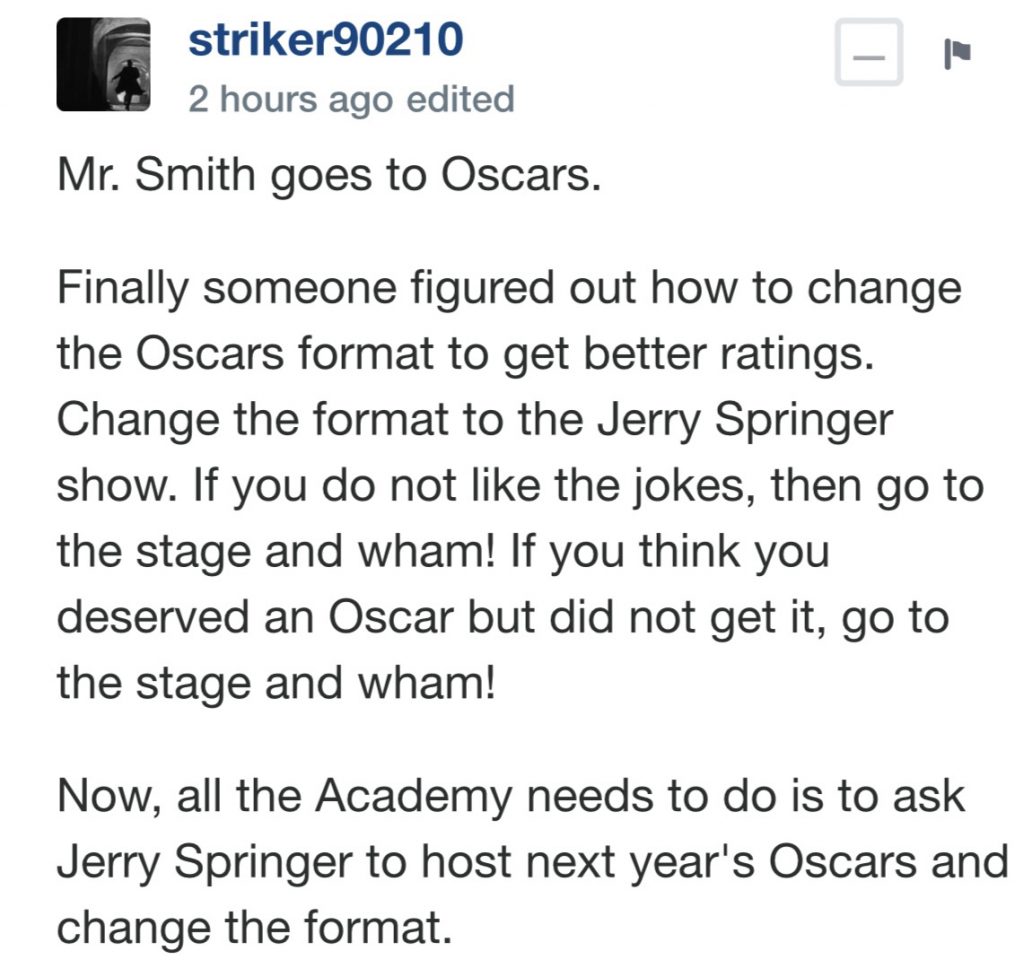


My Thought Exactly
I too was immediately…uhm, puzzled when Daniel Kaaluya and H.E.R. strolled onto the Oscar stage last night with Toto’s “Africa,” of all the songs in all the world, providing tuneful accompaniment.
Context Is All
You can take the man out of West Philadelphia, but you can’t take West Philadelphia out of the man. In a flash, all the self-supporting facades and belief systems that we’ve wrapped around ourselves can just disintegrate and suddenly we’re 16 again…

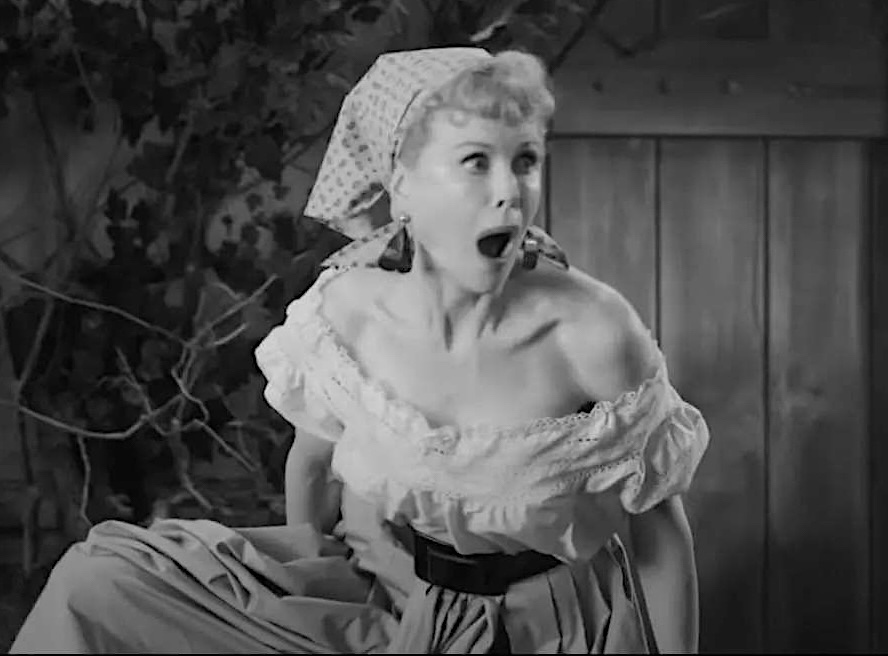



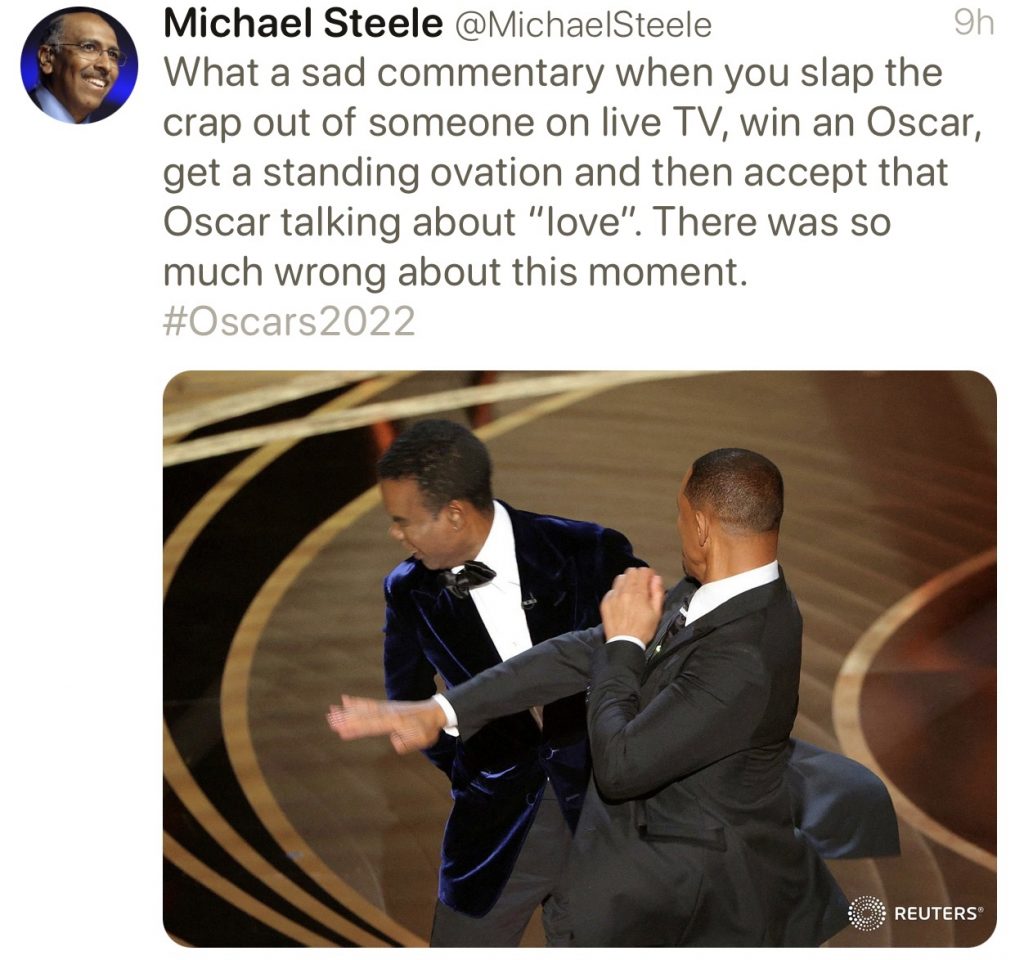
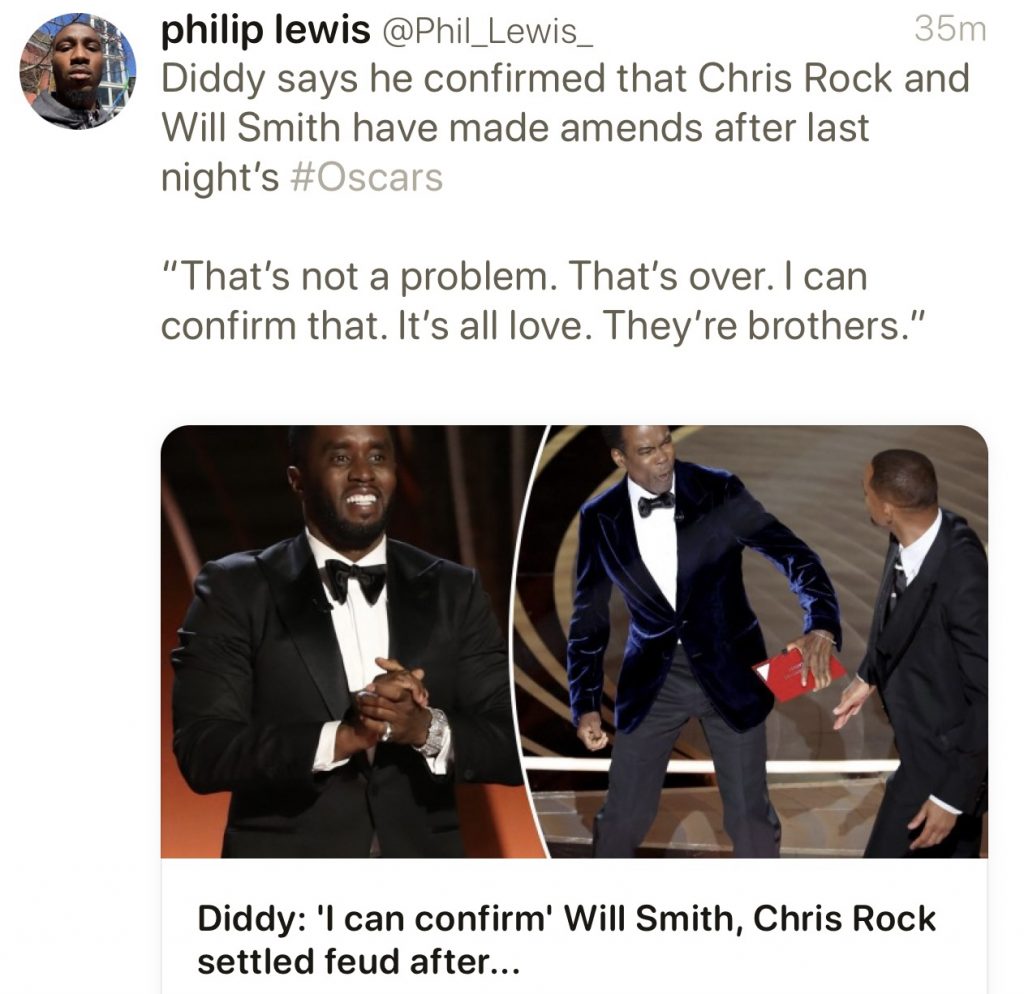
He Who Gets Slapped
Tatiana admires what she regards as a “man’s man” — strong, decisive, two-fisted, Will Smith-like.
Not long after Smith slapped Chris Rock on the Oscar stage and a little while after we’d both watched and re-watched videos of the incident, Tatiana wanted to know if I was a real man by the standards of Smith or Vladimir Putin — if I would have the cojones to stride onto the main stage of the Comedy Store, say, and slug a comedian if he had insulted her in some way.
My answer boiled down to “no, I would not slug the comedian onstage in front of an audience.” But we would have stern words in private after he’d completed his set. I would admonish him for being callous or thoughtless and I would insist upon a civil apology, but no, I would not follow the Putin playbook by slugging him or kicking him in the balls or forcing a cyanide capsule into his mouth and holding his jaw shut.
“Are you a man? Do you know what a real man is?” came her response.
“I’m not a tough, two-fisted Russian husband, I can tell you that,” I said, “and I’ve never felt so proud of myself as I am this very moment. So no, I am not a face-slapping kind of guy, certainly not in public and in full view of a paying audience.
“So I am not Will Smith, and thank you very much for allowing me to make things clear in this regard. I don’t tolerate cruelty or hurting a woman’s feelings or in any way humiliating her in front of others, but I do believe in settling things outside and privately, face to face and eyeball to eyeball.”
Liza Minelli Sidesteps CODA Win
It was the appearance of the wheelchaired Liza Minnelli alongside Lady Gaga as they jointly announced that CODA had won Best Picture Oscar…who wasn’t deeply affected by this? Congrats to CODA for the big win, of course.
Climactic Best Actress Moment
Anthony Hopkins shuffles out, expresses a supportive statement to the pugilist Will Smith, introduces the clips and then says “the Oscar goes to Jessica Chastain for The Eyes of Tammy Faye.” Hollywood Elsewhere understands and respects the impulse to give a Best Actress by way of a Best Makeup Oscar to a good, respected, hard-working actress. Chastain gave a good performance. My preference was for Parallel Mothers‘ Penelope Cruz but that’s okay. Her performance stands on its own merit, eternally.
Slap Seen Round The World
“Richard Williams was a fierce defender of his family,” Smith said in his acceptance speech. “In this time of my life, in this moment, I am overwhelmed by what God is calling on me to do and be in this world. I know to do what we do, you’ve got to be able to take abuse. You’ve got to be able to have people disrespect you, and you’ve gotta smile and pretend that’s OK. I want to apologize to the Academy, to my fellow nominees.
“This is a beautiful moment…[but] I want to apologize to the Academy…here I am, being the crazy father, the crazy father…love will make you do crazy things…thank you for this honor, thank you for this moment.” — fragments from Will Smith‘s acceptance speech after winning the Best Actor Oscar for his performance as Richard Williams in King Richard.
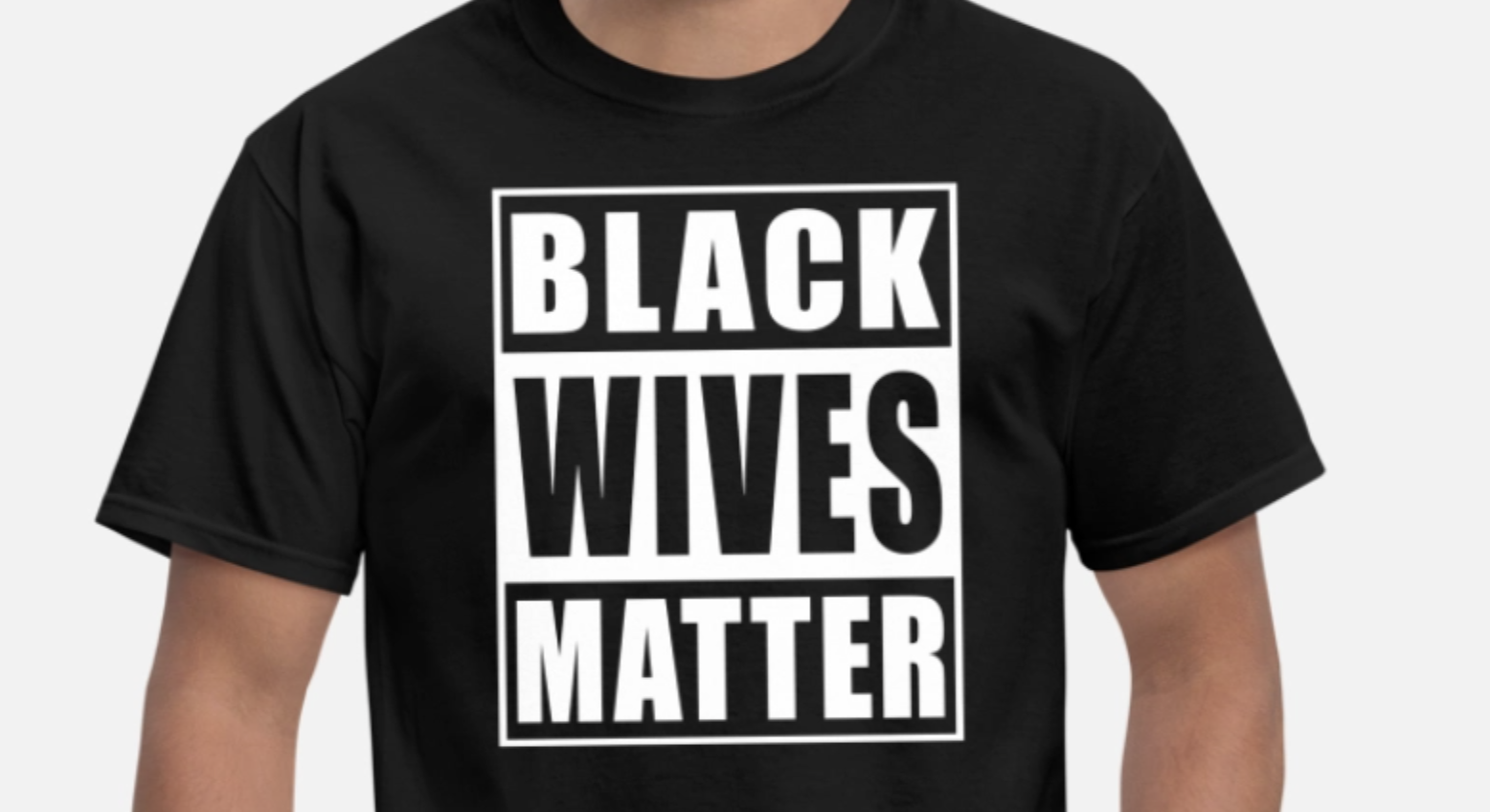
Smith Assaults Rock
All-Time Oscar Bitschslap Moment: Will Smith became very angry at Chris Rock for telling a rude joke (“G.I. Jane boot camp”) about the shaved-head statement worn by Jada Pinkett Smith, Smith’s wife. Then he went back to his seat and let go with a couple of loud f-bombs. The producers cut the sound from part of the incident.
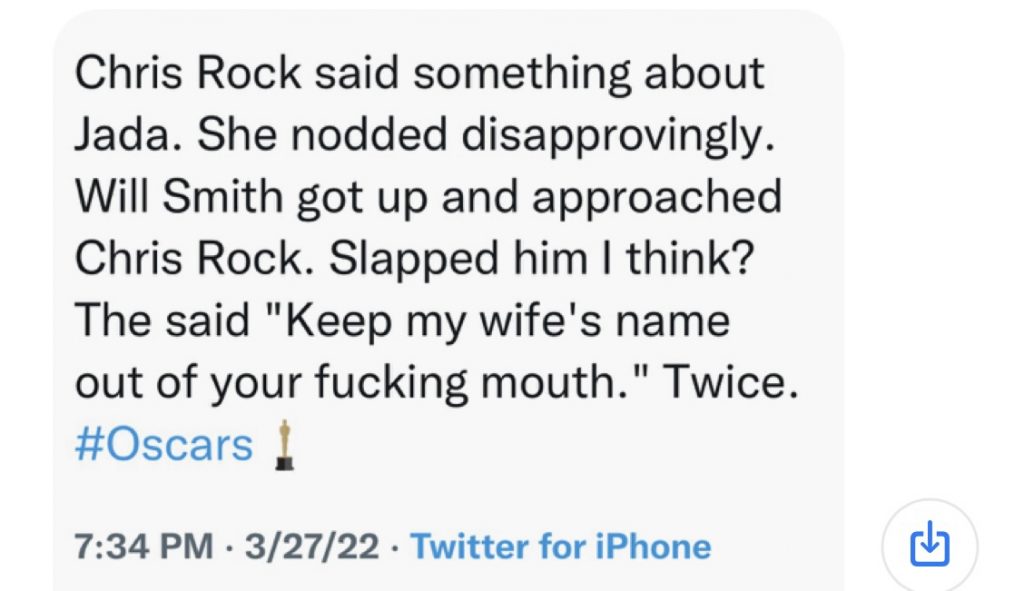
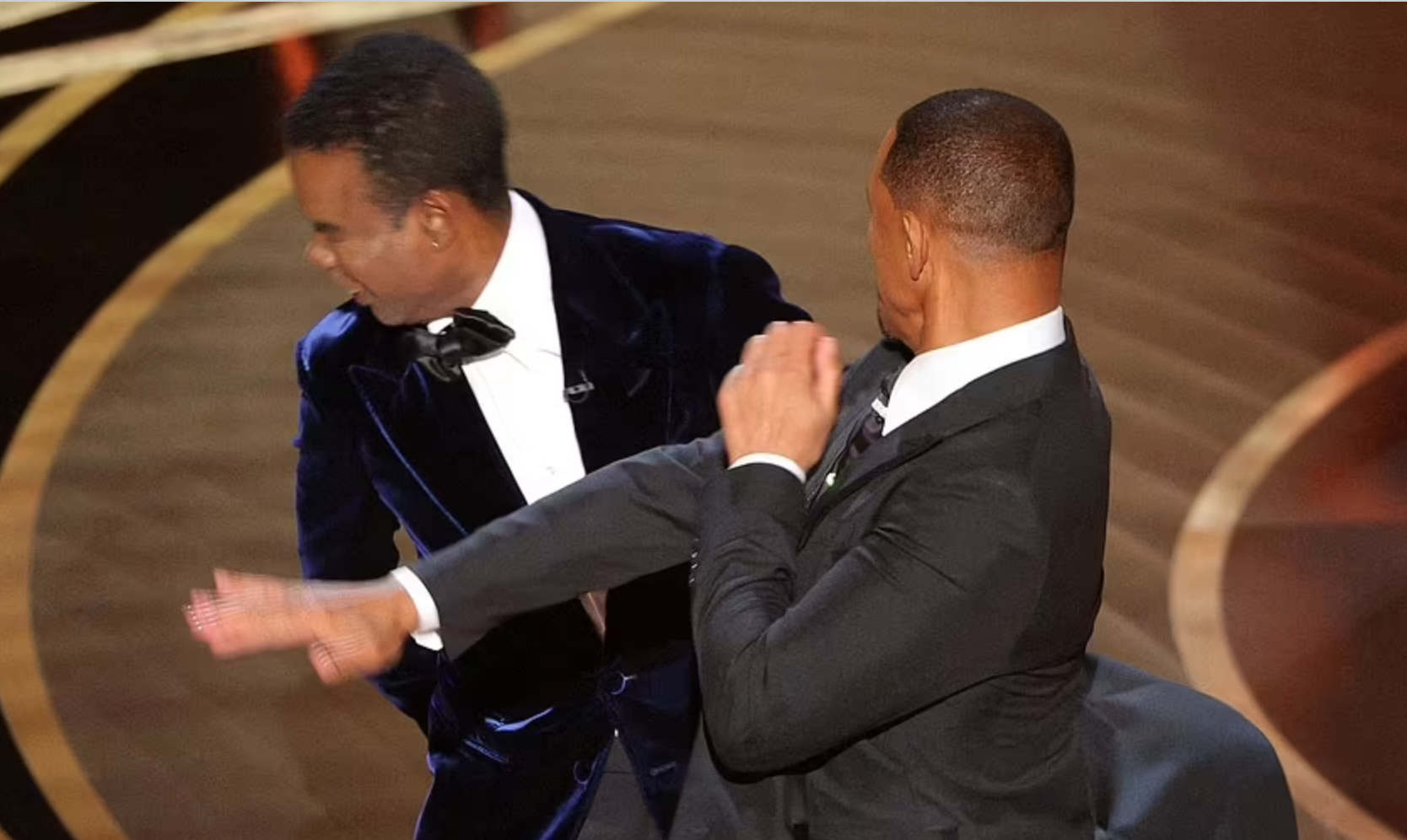
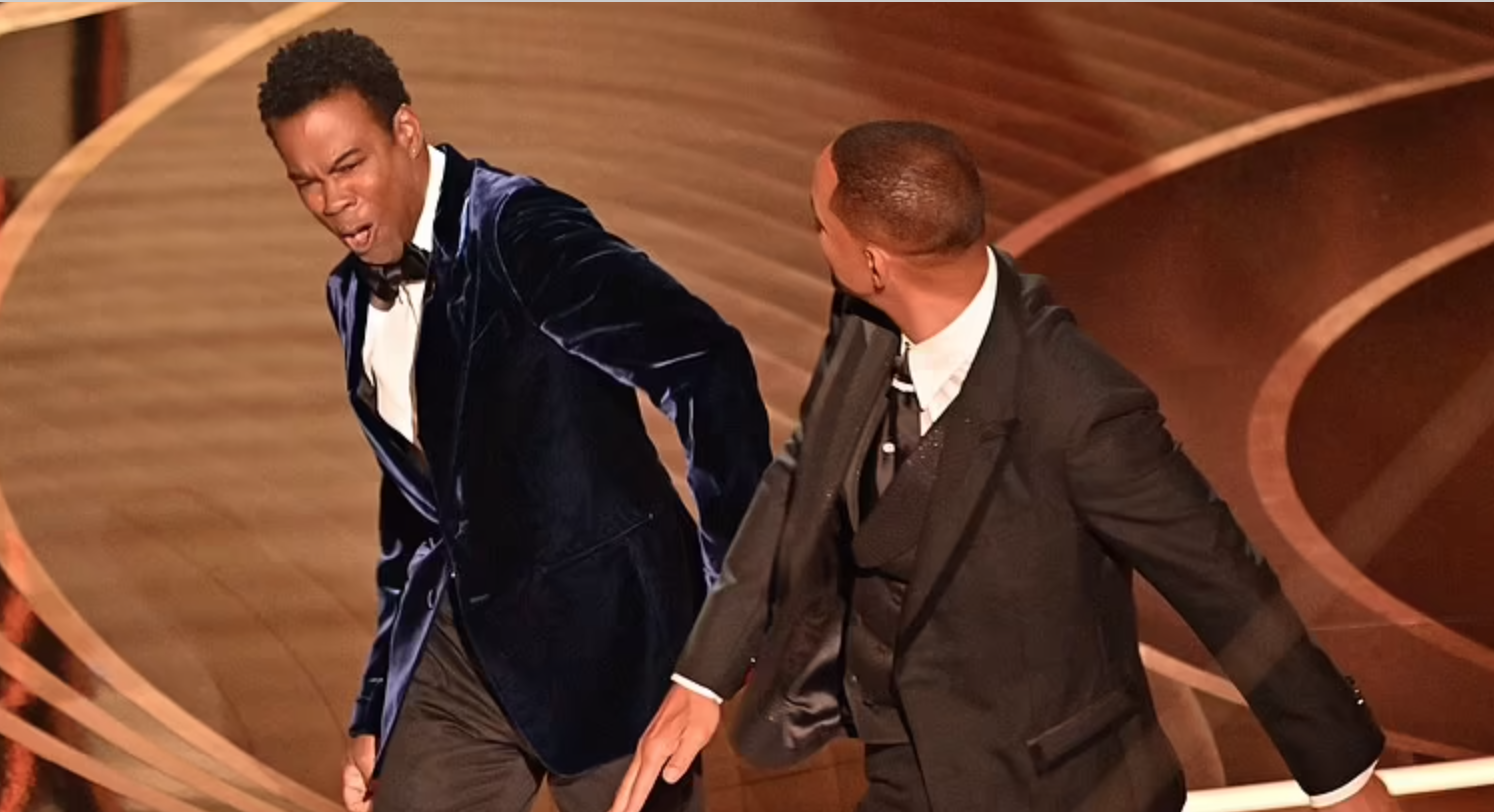
Apologies
HE is stalling and crashing due to me — it’s my damn fault for trusting Siteground, my Eastern European server, to deliver in a solid, thorough professional level. It’s my own damn fault but I’m dumping these guys as soon as I can. This is awful. I feel mortified.
